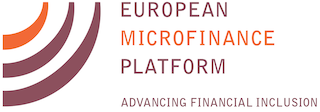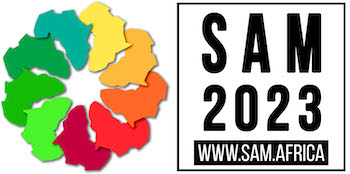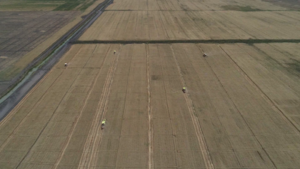 At Thursday’s debate on “high-tech” versus “high-touch” financial services at European Microfinance Week, Dorcas Thorpe of Nigeria’s LAPO Microfinance Bank argued that customers in rural areas are more likely to access financial services via high-touch channels such as branches and agents rather than mobile money because they have – on average – lower levels of digital literacy and trust in digital financial services. Gregoire Lecomte of
At Thursday’s debate on “high-tech” versus “high-touch” financial services at European Microfinance Week, Dorcas Thorpe of Nigeria’s LAPO Microfinance Bank argued that customers in rural areas are more likely to access financial services via high-touch channels such as branches and agents rather than mobile money because they have – on average – lower levels of digital literacy and trust in digital financial services. Gregoire Lecomte of
Search Results for: technology
MICROCAPITAL BRIEF: Buying Maritime Microfinance, Fintech Lender Payhippo Gains Deposit License, Access to Nigeria Inter-Bank Settlement System
 Payhippo, a financial technology (fintech) lender to small and medium-sized enterprises (SMEs) in Nigeria, recently agreed to pay an undisclosed sum to acquire Maritime Microfinance Bank. Maritime was founded in 2014 and provides in-person loans and savings services to enterprises in Nigeria that have zero to 500 employees, mainly in the shipping and
Payhippo, a financial technology (fintech) lender to small and medium-sized enterprises (SMEs) in Nigeria, recently agreed to pay an undisclosed sum to acquire Maritime Microfinance Bank. Maritime was founded in 2014 and provides in-person loans and savings services to enterprises in Nigeria that have zero to 500 employees, mainly in the shipping and
MICROCAPITAL BRIEF: Sa-Dhan Members, NextGen Telesolutions to Serve Microfinance Customers in India via Feature Phones
 Sa-Dhan, a network of 150 microfinance institutions (MFIs) in India, recently partnered with India’s NextGen Telesolutions to deliver digital financial services to a group that is often excluded from financial services: people who have a mobile phone, but not a smartphone.
Sa-Dhan, a network of 150 microfinance institutions (MFIs) in India, recently partnered with India’s NextGen Telesolutions to deliver digital financial services to a group that is often excluded from financial services: people who have a mobile phone, but not a smartphone.
Jiji Mammen, the CEO of Sa-Dhan reportedly said, “Digitisation in collections
SPECIAL REPORT: Jobs in International Finance
 Finance is a lucrative and highly-demanded industry. It involves managing money; as such, most jobs in finance can be demanding and have strict entry requirements. Getting a good job in finance requires great education, a Bachelor’s degree is the least requirement for any high-paying finance job. A good background in economics, mathematics, statistics, or a related field is usually necessary to get a good job in the industry. However, you can rest assured of
Finance is a lucrative and highly-demanded industry. It involves managing money; as such, most jobs in finance can be demanding and have strict entry requirements. Getting a good job in finance requires great education, a Bachelor’s degree is the least requirement for any high-paying finance job. A good background in economics, mathematics, statistics, or a related field is usually necessary to get a good job in the industry. However, you can rest assured of
SPECIAL REPORT: Inclusive Finance in Africa Amid the Current Food and Climate Crises, in Anticipation of SAM 2023 in West Africa
 In anticipation of SAM 2023 (Semaine Africaine de la Microfinance 2023), its organisers convened a panel discussion on October 19 as part of Accion’s Financial Inclusion Week. The panel illustrates the commitment of SAM’s organisers to nurture ongoing dialogue on the issues faced by the inclusive finance sector. The objective was to share and question the strategies being used to address issues faced by the agricultural sector, which remains one of the least financed due to investors’ perception of it as high-risk.
In anticipation of SAM 2023 (Semaine Africaine de la Microfinance 2023), its organisers convened a panel discussion on October 19 as part of Accion’s Financial Inclusion Week. The panel illustrates the commitment of SAM’s organisers to nurture ongoing dialogue on the issues faced by the inclusive finance sector. The objective was to share and question the strategies being used to address issues faced by the agricultural sector, which remains one of the least financed due to investors’ perception of it as high-risk.
Climate change coupled with social and political turmoil is negatively impacting agricultural value chains in particular and global food security in general. The conflict between Ukraine and Russia is lowering food security and agricultural production in many developing countries, as the warring nations are two of the largest exporters of key agricultural commodities such as wheat, corn, sunflower oil and fertiliser. The Horn of Africa could suffer the worst effects of the war because of its ongoing food crisis following three years of severe drought, the COVID-19 pandemic and protracted local conflicts. Market volatility and rises in energy costs, input costs, interest rates and perceived risk are expected to lead to higher costs of borrowing, credit crunches, and unmet working capital and liquidity needs.
Addressing these issues at the Financial Inclusion Week panel were:
– Jacques Afetor, Executive Director of Assilassimé Solidarité, a Togolese MFI supporting
SPECIAL REPORT: European Microfinance Week Is Almost Here!
 European Microfinance Week (EMW) 2022 is fast approaching, and we’re delighted that it will be in-person again, with a hybrid component for remote speakers and participants. EMW2022 offers more than 30 sessions organised across several thematic streams, including “Financial Inclusion that Works for Women” – the topic of the European Microfinance Award 2022 – as well as green and climate-smart finance, digitalisation, funding, financial health, and social performance and impact. Other subject areas include agri-insurance, women’s leadership, fund regulation, mobile money, biodiversity, refugee finance, WASH, food security and more. To give MicroCapital readers a sense of what they can look forward to, here are some details of just three of the EMW2022 thematic streams:
European Microfinance Week (EMW) 2022 is fast approaching, and we’re delighted that it will be in-person again, with a hybrid component for remote speakers and participants. EMW2022 offers more than 30 sessions organised across several thematic streams, including “Financial Inclusion that Works for Women” – the topic of the European Microfinance Award 2022 – as well as green and climate-smart finance, digitalisation, funding, financial health, and social performance and impact. Other subject areas include agri-insurance, women’s leadership, fund regulation, mobile money, biodiversity, refugee finance, WASH, food security and more. To give MicroCapital readers a sense of what they can look forward to, here are some details of just three of the EMW2022 thematic streams:
Climate and Green Finance
Climate change represents one of the greatest issues the world faces today. While the changing climate impacts all countries, sectors and people, they are not all affected in the same ways. Climate change is particularly threatening to poor and marginalised communities. Tackling the issue requires battling on many fronts – not just on the mitigation side (minimising the actual climate change that takes place), but on the adaptation side too. The financial inclusion sector has an important role in increasing the resilience of communities most vulnerable to the effects of climate change, and EMW2022 will feature a variety of related sessions, including:
MICROCAPITAL BRIEF: Nala Expands to Kenya, Offers Direct Bill Payment from UK, US
 Nala, a financial technology firm launched in Tanzania in 2018, expanded into Kenya earlier in 2022, allowing money transfers from the US and UK in partnership with
Nala, a financial technology firm launched in Tanzania in 2018, expanded into Kenya earlier in 2022, allowing money transfers from the US and UK in partnership with
MICROFINANCE EVENT: Africa Fintech Summit; November 2-4, 2022; Cape Town, South Africa
 The eighth edition of this event offers attendees 21 sessions presented by stakeholders representing fintech [financial technology] firms and investors overseeing total capital of USD 4.5 billion. The detailed event program is yet to be announced, but it is to include
The eighth edition of this event offers attendees 21 sessions presented by stakeholders representing fintech [financial technology] firms and investors overseeing total capital of USD 4.5 billion. The detailed event program is yet to be announced, but it is to include
MICROFINANCE EVENT: European Microfinance Week; November 16-18, 2022; Luxembourg
 This annual event is organized with the goal of facilitating networking among various members of the inclusive finance sector. The event program – some of which can be accessed virtually – includes meetings of some
This annual event is organized with the goal of facilitating networking among various members of the inclusive finance sector. The event program – some of which can be accessed virtually – includes meetings of some
MICROCAPITAL BRIEF: Huruma Fund Expands Impact to Mexico, Lending $15m to Mega, ProCredito for Agricultural SMEs
 Spain’s Gawa Capital, manager of the public-private Huruma Fund, recently disbursed the fund’s first investments in Mexico, lending EUR 12 million (USD 12 million) to Mega and EUR 3.6 million (USD 3.6 million) to ProCredito, financial services providers whose clients include many agricultural small and medium-sized enterprises (SMEs). Both investees are active in lending intended to minimize the effects of
Spain’s Gawa Capital, manager of the public-private Huruma Fund, recently disbursed the fund’s first investments in Mexico, lending EUR 12 million (USD 12 million) to Mega and EUR 3.6 million (USD 3.6 million) to ProCredito, financial services providers whose clients include many agricultural small and medium-sized enterprises (SMEs). Both investees are active in lending intended to minimize the effects of
MICROFINANCE EVENT: Global Impact Investing Network (GIIN) Investor Forum; October 12-13, 2022; the Hague, the Netherlands
 The goal of this event is to connect the various elements of “the impact ecosystem” to expand the impact investing market, thus boosting efforts to create “positive, measurable social and environmental impact” alongside financial returns. The agenda includes sessions
The goal of this event is to connect the various elements of “the impact ecosystem” to expand the impact investing market, thus boosting efforts to create “positive, measurable social and environmental impact” alongside financial returns. The agenda includes sessions
MICROFINANCE PAPER WRAP-UP: “Banking in Layers: Five Cases to Illustrate How the Market Structure for Financial Services is Evolving;” by Aiaze Mitha, Faith Biegon, Peter Zetterli; Published by CGAP
 This paper cites several financial service providers (FSPs) in emerging markets in exploring how recent advancements in digital technology have enabled new business models, transforming the market for financial services. The authors argue that these FSPs have deconstructed the financial services market into separate modules, allowing these modules to be reassembled in innovative ways. These modules include:
This paper cites several financial service providers (FSPs) in emerging markets in exploring how recent advancements in digital technology have enabled new business models, transforming the market for financial services. The authors argue that these FSPs have deconstructed the financial services market into separate modules, allowing these modules to be reassembled in innovative ways. These modules include:
MICROCAPITAL BRIEF: Prophius, Mastercard Enable SMEs in Africa to Accept “Tap-on-phone” Payments
 Prophius, a Nigeria-based financial technology (fintech) firm, recently entered a partnership with US-based technology provider Mastercard, to equip its PayContactless service to allow its users to accept payments on their Android mobile phones from customers’ payment cards, e-wallets and
Prophius, a Nigeria-based financial technology (fintech) firm, recently entered a partnership with US-based technology provider Mastercard, to equip its PayContactless service to allow its users to accept payments on their Android mobile phones from customers’ payment cards, e-wallets and
MICROCAPITAL BRIEF: Grupo Mega Nets $10m for SME Leasing in Mexico via Bond Sale to MicroVest
 MicroVest, a debt-focused asset manager owned by US-based DAI Global, recently purchased USD 10 million in bonds from Mexico’s Grupo Mega to support leasing by small and medium-sized enterprises (SMEs), which can help SMEs “remain capital-light [in a way] that
MicroVest, a debt-focused asset manager owned by US-based DAI Global, recently purchased USD 10 million in bonds from Mexico’s Grupo Mega to support leasing by small and medium-sized enterprises (SMEs), which can help SMEs “remain capital-light [in a way] that
MICROCAPITAL BRIEF: Banque Centrale Populaire (BCP), Sowit Deliver Agritech to Farmers in Morocco
 Morocco’s Banque Centrale Populaire (BCP) recently signed an agreement with Sowit, a provider of agricultural technology (agritech) services, to support farmers in Morocco in increasing their profitability with better data and access to finance. In particular, Sowit will provide farmers in the Béni Mellal-Khénifra region with
Morocco’s Banque Centrale Populaire (BCP) recently signed an agreement with Sowit, a provider of agricultural technology (agritech) services, to support farmers in Morocco in increasing their profitability with better data and access to finance. In particular, Sowit will provide farmers in the Béni Mellal-Khénifra region with
MICROCAPITAL BRIEF: As Lenders Meet Central Bank of Sudan Requirement to Allocate 12% of Portfolios to Microfinance, Agriculture Leads Market
 Since 2007, the Central Bank of Sudan, microfinance institutions and other stakeholders have worked to institutionalize microfinance practices that comply with Islamic law and are resilient to challenges such as changing political situations, regional stagflation and COVID-19.
Since 2007, the Central Bank of Sudan, microfinance institutions and other stakeholders have worked to institutionalize microfinance practices that comply with Islamic law and are resilient to challenges such as changing political situations, regional stagflation and COVID-19.  The regulator required in 2010 that commercial banks allocate at least 12 percent of their lending to microcredit, which is defined as loans of up to USD 2,600, but they only recently met the requirement.
The regulator required in 2010 that commercial banks allocate at least 12 percent of their lending to microcredit, which is defined as loans of up to USD 2,600, but they only recently met the requirement.
From the end of 2020 to the end of 2021, the number of microfinance clients in the country grew by 100,000 to
MICROFINANCE EVENT: Global Off-Grid Solar Forum & Expo; October 18-20, 2022; Kigali, Rwanda
 This seventh edition of this event will focus on expanding off-grid solar markets globally to make energy accessible to all by 2030. The program features sessions including:
This seventh edition of this event will focus on expanding off-grid solar markets globally to make energy accessible to all by 2030. The program features sessions including:
MICROCAPITAL BRIEF: Sahyadri Farms of India Raises $39m in Equity from Incofin, FMO, Korys, Proparco to Boost Smallholder Farmers’ Exports of Fruits, Vegetables
 The Belgian impact investor Incofin recently led an investment round in Sahyadri Farms, an Indian firm that works with smallholder farmers to grow and process food for export. The value of the equity round is INR 3.1 billion (USD 39 million), including participation from the Dutch development bank Financierings-Maatschappij voor Ontwikkelingslanden (FMO); Korys, the impact investing firm of Belgium’s Colruyt family; and the French government’s Société de Promotion et de Participation pour la Coopération Economique (Proparco).
The Belgian impact investor Incofin recently led an investment round in Sahyadri Farms, an Indian firm that works with smallholder farmers to grow and process food for export. The value of the equity round is INR 3.1 billion (USD 39 million), including participation from the Dutch development bank Financierings-Maatschappij voor Ontwikkelingslanden (FMO); Korys, the impact investing firm of Belgium’s Colruyt family; and the French government’s Société de Promotion et de Participation pour la Coopération Economique (Proparco).
Sahyadri Farms is a “farmer-led” firm that buys nine crops from 18,000 farmers who tend
